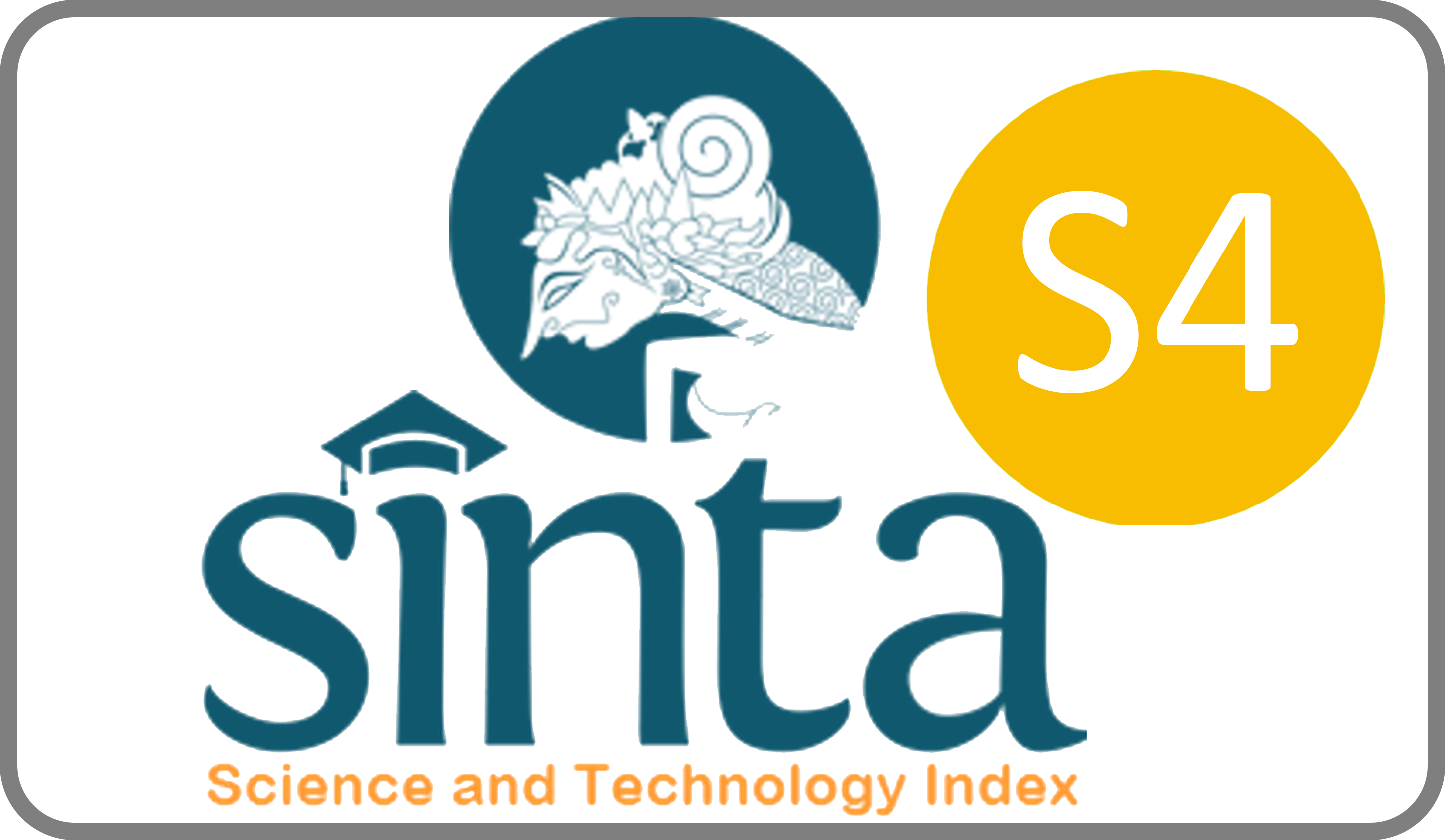OPTIMIZING THE USE OF ARTIFICIAL INTELLIGENCE FOR THE CREATION OF PROMOTIONAL CONTENT AND LEARNING IN THE BOARDING SCHOOL
Downloads
Darul Ittihad Islamic Boarding School (Pondok Pesantren Darul Ittihad), as a traditional educational institution, faces challenges in optimizing the use of information technology, particularly Artificial Intelligence (AI), for the development of promotional and instructional content. This community service program (PKM) aims to enhance the pesantren's capacity to utilize AI and digital design applications such as Canva. The activity was conducted in three phases: preparation, implementation, and evaluation. During the preparation phase, the team conducted a needs assessment survey and developed relevant training materials. The implementation phase consisted of two training sessions, focusing on the creation of AI-based promotional and educational content. Evaluation was carried out by collecting participant feedback through a questionnaire distributed via Google Forms. The evaluation results indicated a high level of participant satisfaction, with an average score of 3.24 out of 4. Additionally, 88% of participants successfully completed the independent assignments provided after the training, demonstrating a significant improvement in skills. This program concludes that the integration of AI into teaching and promotional processes at Darul Ittihad has the potential to enhance communication effectiveness, increase content relevance, and better prepare students to face the challenges of the digital era.
Barid, M., Wajdi, N., Irsyadiah, N., Marlina, Y., & Aziz, A. A. (2025). INTEGRATION OF TECHNOLOGY IN ISLAMIC BOARDING SCHOOL : OPPORTUNITIES AND. 02(02), 10–18.
Ching, V., & Mothi, D. (2025). AI for Creatives. Auerbach Publications. https://doi.org/10.1201/9781003533016
Connock, A. (2022). 7. Media Management and Artificial Intelligence. http://dx.doi.org/10.4324/9781003213611
Danesi, M. (2024). 1. AI in Marketing and Advertising. http://dx.doi.org/10.1007/978-3-031-54752-2_7
Darip, M. (2024). 1. The Empowering Digital Literacy in Islamic Boarding School Environments Through Computer and Information Technology Training. http://dx.doi.org/10.33369/abdireksa.v5.i2.42-47
Erafy, A. N. El. (2023). 3. Applications of Artificial Intelligence in the field of media. International Journal of Artificial Intelligence and Emerging Technology. http://dx.doi.org/10.21608/ijaiet.2024.275179.1006
Hamdi, M. (2024). 6. How AI is Transforming and Shaping the Future of Education. http://dx.doi.org/10.1109/ines63318.2024.10629089
Mardi, M. Y., Syam, N., Khumaidah, S. T., & Humaidi, H. (2023). 6. Characteristics of Islamic Boarding School Students. Al-Irfan. http://dx.doi.org/10.58223/alirfan.v6i1.6644
Matthews, J., Fastnedge, D., & Nairn, A. M. (2023). 10. The future of advertising campaigns: The role of AI-generated images in advertising creative. http://dx.doi.org/10.1386/jpm_00003_1
Mungai, B. K., Omieno, P. K. K., Dr. Mathew Egessa, P., & Manyara, P. N. (2024). 1. AI Chatbots in LMS: A Pedagogical Review of Cognitive, Constructivist, and Adaptive Principles. Maǧallaẗ Al-Handasaẗ Wa-Al-Tiknūlūǧiyā. http://dx.doi.org/10.47191/etj/v9i08.15
Nur, S., Bina, R., & Masyitah, S. (2023). 3. Transformation and Existence of Pondok Pesantren to Face the Globalization of Education. Maharot. http://dx.doi.org/10.28944/maharot.v7i2.1267
Nuzulita, N., Purwanti, E., Rosyidan, F. Y., Firdausi, F., Arrasyid, N. N., & Husna, O. I. (2022). PENINGKATAN KUALITAS KONTEN PADA MEDIA SOSIAL SEKOLAH SEBAGAI SARANA PROMOSI DAN BRANDING SEKOLAH DI SURABAYA. Jurnal Layanan Masyarakat, 6(2).
Purwanti, P., Andari, A., Ansori, M. A., & Hadinata, F. (2023). 5. Dynamics of Pesantren Formation: The Origins of Pesantren and Institutional Growth. Journal of Social Research. http://dx.doi.org/10.55324/josr.v2i11.1599
Rouxel, A. (2020). 6. AI in the Media Spotlight. http://dx.doi.org/10.1145/3422839.3423059
Saifi, A.-G. (2024). 2. Pedagogy and AI in Education. Advances in Educational Technologies and Instructional Design Book Series. http://dx.doi.org/10.4018/979-8-3693-6397-3.ch006
Sharma, A., Khagendra, Upman, K., Saini, D., & Raj, A. (2023). 4. NLP and It’s all Application in AI. http://dx.doi.org/10.52783/tjjpt.v43.i4.2328
Taufik, I. W., Effendy, F., Nuzulita, N., Secoria, I. G., & Putri, A. (2022). Training and Assistance of Online Marketing of Processed Marine Products Micro-Medium Business ‘Lamora’in Kauffman Village, Socah, Bangkalan. J. Layanan Masy.(Journal Public Serv, 6(1), 185–194.
Tenório, J., Pedreño, N., Batistela, M., & Ferreira, T. (2023). 10. Canva: plataforma de design ressignificando a forma de trabalhar em equipes EAD. http://dx.doi.org/10.17143/ciaed.xxviiiciaed.2023.233557.
Copyright (c) 2025 Taufik Taufik, Faried Effendy, Purbandini Purbandini, Endah Purwanti, Indah Werdiningsih, Nania Nuzulita, Joevans Mikail Baihaqi, Javier Ihsan Adhipratama, Muhammad Fauzan Alfath, Muhammad Fadhil Putra Pratama, Faruq Abdul Muid, Annita Kastur, Dewien Nabila Agustin

This work is licensed under a Creative Commons Attribution-ShareAlike 4.0 International License.
JLM by Unair is licensed under a Creative Commons Attribution-ShareAlike 4.0 International License.
1. The journal allows the author to hold the copyright of the article without restrictions.
2. The journal allows the author(s) to retain publishing rights without restrictions
3. The legal formal aspect of journal publication accessibility refers to Creative Commons Attribution Share-Alike (CC BY-SA).
4. The Creative Commons Attribution Share-Alike (CC BY-SA) license allows re-distribution and re-use of a licensed work on the conditions that the creator is appropriately credited and that any derivative work is made available under "the same, similar or a compatible license”. Other than the conditions mentioned above, the editorial board is not responsible for copyright violation.


















